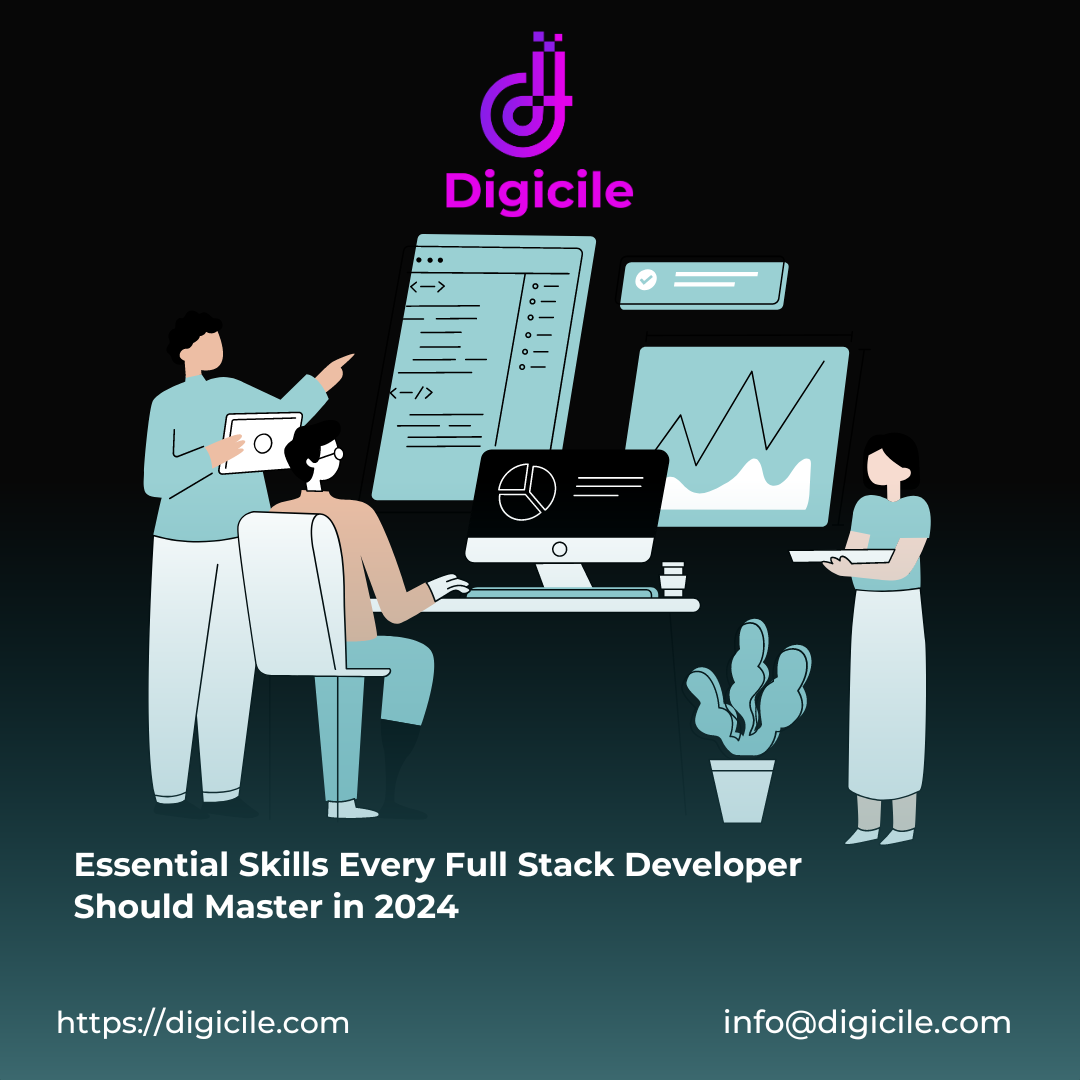As the tech industry continues to evolve, the role of a full stack developer remains crucial. These versatile professionals are expected to handle both front-end and back-end development, making them indispensable in creating comprehensive web applications. To stay competitive and effective in 2024, full stack developers need to master a diverse set of skills. Here’s a look at the essential skills of full stack developer should focus on this year.
Front-End Development Skills
1. HTML/CSS
HTML (HyperText Markup Language) and CSS (Cascading Style Sheets) form the foundation of web development. Mastery of these languages is essential for creating well-structured, visually appealing, and responsive web pages. In 2024, understanding the latest HTML5 and CSS3 features will be crucial.
2. JavaScript and Frameworks
JavaScript remains a cornerstone of front-end development. Full stack developers should be proficient in JavaScript and familiar with popular frameworks and libraries such as React, Angular, and Vue.js. These tools enable the creation of dynamic and interactive user interfaces, which are essential for modern web applications.
3. Responsive Design
With the increasing variety of devices and screen sizes, responsive design is more important than ever. Full stack developers should be skilled in creating layouts that adapt seamlessly to different devices using CSS frameworks like Bootstrap and Tailwind CSS, as well as media queries.
Back-End Development Skills
1. Server-Side Programming Languages
A strong grasp of server-side programming languages is crucial. In 2024, languages such as Node.js, Python, Ruby, Java, and PHP will continue to be relevant. Full stack developers should be able to write server-side logic that efficiently handles requests, processes data, and interacts with databases.
2. Database Management
Effective data management is a key responsibility for full stack developers. Proficiency in both relational databases (like MySQL, PostgreSQL) and NoSQL databases (like MongoDB, Cassandra) is essential. This includes designing database schemas, writing efficient queries, and optimizing database performance.
3. API Development and Integration
APIs (Application Programming Interfaces) are the bridges between the front-end and back-end. Full stack developers should be adept at designing, developing, and integrating APIs. This involves creating RESTful services and understanding GraphQL, which is gaining popularity for its flexibility and efficiency.
DevOps and Deployment Skills
1. Version Control
Proficiency in version control systems like Git is a must for managing code changes and collaborating with other developers. Platforms like GitHub or GitLab facilitate version control, code reviews, and collaboration.
2. Continuous Integration/Continuous Deployment (CI/CD)
Understanding CI/CD practices is vital for automating testing and deployment processes. Tools like Jenkins, Travis CI, and CircleCI help ensure that code changes are integrated and deployed efficiently, reducing the risk of errors in production.
Cloud and Server Management
1. Cloud Services
With the increasing reliance on cloud infrastructure, full stack developers should be familiar with cloud platforms like AWS, Azure, and Google Cloud Platform. This includes understanding how to deploy, manage, and scale applications in the cloud.
2. Containerization and Orchestration
Containerization tools like Docker and orchestration platforms like Kubernetes are essential for deploying applications in a consistent and scalable manner. Full stack developers should be proficient in using these tools to manage containerized applications.
Security Practices
Security is a critical aspect of web development. Full stack developers should understand common security threats and best practices for mitigating them. This includes knowledge of:
- Authentication and Authorization: Implementing secure user authentication and authorization mechanisms.
- Data Encryption: Ensuring data is encrypted in transit and at rest.
- Vulnerability Management: Identifying and mitigating security vulnerabilities through regular audits and updates.
Soft Skills: Communication and Problem-Solving
1. Communication
Strong communication skills are vital for collaborating with team members, stakeholders, and clients. Full stack developers need to explain technical concepts to non-technical audiences and work effectively within a team.
2. Problem-Solving
The ability to troubleshoot and solve problems across the entire stack is a hallmark of a successful full stack developer. This requires analytical thinking, creativity, and a proactive approach to identifying and addressing issues.
Continuous Learning and Adaptability
The tech landscape is constantly evolving, and full stack developers must stay updated with the latest trends, tools, and best practices. A commitment to continuous learning and adaptability allows them to remain versatile and proficient in their roles.
Conclusion
In 2024, the demand for versatile and skilled full stack developers will continue to grow. By mastering these essential skills, full stack developers can ensure they remain competitive and effective in the ever-evolving field of web development. Whether it’s staying current with the latest front-end frameworks, honing back-end programming skills, or embracing DevOps practices, a well-rounded skill set is key to success in this dynamic industry. Leveraging tools like Digicile for project management and team collaboration can further enhance productivity and streamline workflows, helping developers stay ahead in a rapidly changing landscape.






